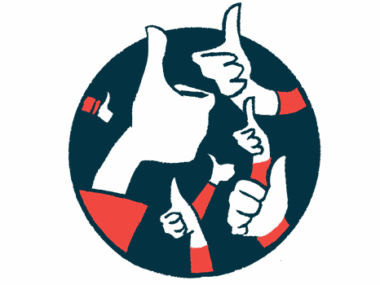For Our Family, the Word ‘Caregiver’ Opened Our Eyes to Reality
Written by |

In the year before my mom, Holly, underwent a double-lung transplant due to idiopathic pulmonary fibrosis (IPF), “caregiver” felt like a cursed word to us.
When my mom was diagnosed, the nurse care coordinator invited her to a pre-transplant support group. The invitation was also extended to my dad, and the coordinator used the word “caregiver” instead of “husband.”
It probably wasn’t a big deal for the nurse coordinator, as they likely didn’t view the word as having negative subtext. But for my mom, the word prompted unpleasant feelings and forced anger and fear to ripple through her like the shrapnel of an exploded bomb. At the time, she considered herself to be very independent, and she worked full-time and cared for her needs, even as she started using supplemental oxygen due to IPF.
Mom had finally received a diagnosis, but the reality of her disease’s progression hadn’t set in yet. She was terrified to acknowledge that she would soon need a caregiver. By hearing the word “caregiver,” she was forced to confront her future.
It also forced her to acknowledge the progressive nature of IPF, and that one day, the disease would steal her independence and change the dynamic of her marriage. If the people on her medical team had begun seeing my dad as her guardian rather than her partner, would she, too? Would my parents eventually begin to resent each other, given this new dynamic?
As my mom began to plan for a future that included a lung transplant, she had to officially designate someone as her caregiver, even though she hated the idea. My dad was the obvious choice as her primary caregiver. My mom’s sister, Shari, agreed to be a second teammate. Both were retired, and it made more sense for them, rather than me, to take on a job that could start at any minute, without notice.
My mom knew I might have trouble committing to the role, given my own responsibilities at the time. She knew I would still support her, but she never asked me to be her legal caregiver. If she had needed me to be, I wonder if she would have worried about it straining our relationship. Would she have felt like a burden to her only child?
As it turned out, I didn’t have trouble committing to the job. Her health declined when I was unemployed and recovering from an injury. Days after she was admitted to the ICU in San Francisco, I dropped everything and bought a one-way ticket from Seattle, where I lived.
Courage to care
When a hospital social worker asked if I was one of my mom’s caregivers, I said yes. I was spending more than 10 hours a day in the ICU, so I thought it was obvious. But the social worker looked confused. I was clearly not my mom’s sister, who was listed in my mom’s file as the female caregiver.
At that point, everything I knew about the transplant process I learned that week in the ICU. I didn’t know there was more to being a caregiver than just showing up and doing what I could for my mom.
My gut response of “Well, duh!” to the question of whether I was a caregiver would not suffice if I needed to make medical decisions or sign documents on my mom’s behalf. From the perspective of hospital staff, it needed to be on paper. So, I accepted the responsibility and found my courage to care.
Now, two years after her successful double-lung transplant, the word “caregiver” has accumulated a fine layer of dust among those in our family. It’s nostalgic and tender now. We think of the word with gratitude, but we also don’t need it like we once did. It’s just part of the stories we tell.
My mom is grateful when she thinks about her time with caregivers. She needed us to be her voice, advocate, and moral support while she was in the ICU for those long months awaiting a lung transplant.
After her discharge, her full-time job was to heal. She was exhausted, traumatized, and physically weak from the experience. Her body and mind were trying to remember how to survive without medical support. She was happy to let us do everything for her, including managing her medications and appointments, helping her with physical therapy, and cooking for her. We worked together to bring her back to life.
We are all glad to have some distance from the word “caregiver” and its functionality. It has served its purpose, and using it in the past tense now feels good, because it means that mom survived.
I was a caregiver. And while I’m not one anymore, I’m still proud of the title. It was something that changed my life and my relationship with my mom for the better.
***
Note: Pulmonary Fibrosis News is strictly a news and information website about the disease. It does not provide medical advice, diagnosis, or treatment. This content is not intended to be a substitute for professional medical advice, diagnosis, or treatment. Always seek the advice of your physician or other qualified health provider with any questions you may have regarding a medical condition. Never disregard professional medical advice or delay in seeking it because of something you have read on this website. The opinions expressed in this column are not those of Pulmonary Fibrosis News or its parent company, Bionews, and are intended to spark discussion about issues pertaining to pulmonary fibrosis.






Leave a comment
Fill in the required fields to post. Your email address will not be published.